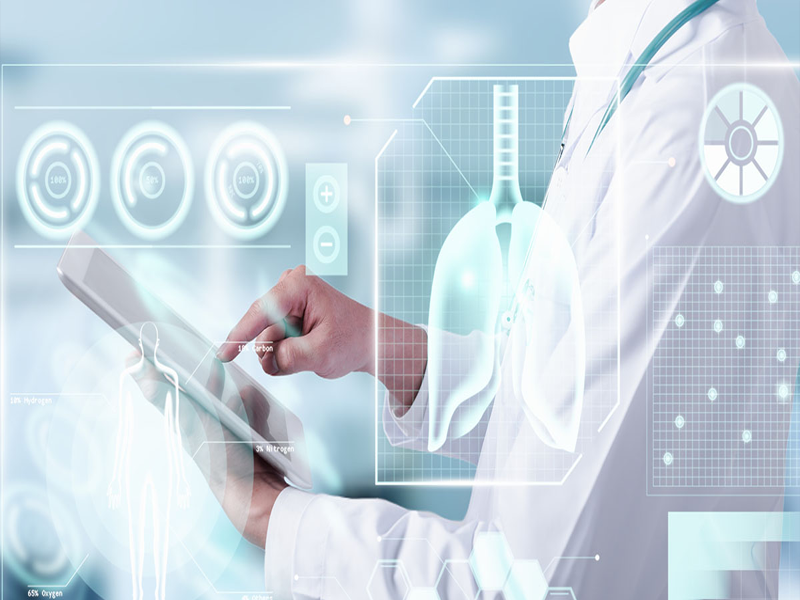Exploring recent breakthroughs in medical technology

- 413
- 0
In recent years, the field of medical technology has witnessed remarkable breakthroughs that are revolutionizing patient care and treatment outcomes.
From advanced diagnostic tools to robotic surgery and personalized medicine, these innovations are not only enhancing the precision of medical interventions but also expanding the possibilities for effective treatments. This article delves into these cutting-edge advancements, highlighting their transformative impact on healthcare. Advanced Diagnostic Tools One of the most significant developments in medical technology is the advent of advanced diagnostic tools. Traditional diagnostic methods, while effective, often involve time-consuming processes and can be limited in their accuracy. Recent innovations, however, have drastically improved both the speed and precision of diagnostics. For example, next-generation imaging technologies, such as high-resolution magnetic resonance imaging (MRI) and computed tomography (CT) scans, now offer unprecedented clarity, allowing for earlier detection of diseases and more accurate assessments of conditions. Additionally, the integration of artificial intelligence (AI) into diagnostic processes is proving to be a game-changer. AI algorithms, trained on vast datasets, can analyze medical images with remarkable speed and accuracy, often identifying subtle abnormalities that may be missed by the human eye. This technology is particularly valuable in oncology, where early detection of cancerous cells can significantly improve prognosis and treatment outcomes.
AI is also being utilized in genomics, where it helps in analyzing genetic data to identify potential genetic disorders and predispositions. Robotic Surgery Another groundbreaking advancement is robotic surgery, which has transformed the field of surgical intervention. Robotic systems, such as the da Vinci Surgical System, offer surgeons unparalleled precision and control during procedures. These systems are equipped with robotic arms that can perform highly intricate tasks with greater accuracy than traditional surgical methods. Surgeons operate these robots using a console that provides a magnified, 3D view of the surgical field, allowing for finer movements and reduced risk of complications. Robotic surgery has several advantages over conventional techniques, including smaller incisions, which lead to less postoperative pain and quicker recovery times. This minimally invasive approach is particularly beneficial for complex surgeries, such as those involving the prostate, kidneys, or heart. The ability to perform such delicate operations with enhanced precision is opening new avenues for treating conditions that were once considered too risky or difficult to address through surgery. Personalized Medicine Personalized medicine represents a paradigm shift in how treatments are tailored to individual patients. Rather than adopting a one-size-fits-all approach, personalized medicine takes into account a patient's unique genetic makeup, lifestyle, and environmental factors to provide more targeted and effective treatments. This approach is made possible by advancements in genomics and biotechnology. For instance, pharmacogenomics, the study of how genes affect an individual's response to drugs, is allowing for the customization of medication regimens based on a patient's genetic profile. This ensures that patients receive drugs that are more likely to be effective while minimizing adverse effects. Personalized cancer treatments are another notable example, where genetic testing of tumors can guide the selection of therapies that are specifically designed to target the genetic mutations driving the cancer.
The development of advanced gene-editing technologies, such as CRISPR-Cas9, is also contributing to the field of personalized medicine. CRISPR allows scientists to make precise modifications to DNA, potentially correcting genetic defects that cause diseases or enhancing the body's ability to fight illness. While still in the experimental stages for many conditions, this technology holds promise for revolutionizing the treatment of genetic disorders and cancers. Transformative Impact on Patient Care The integration of these breakthroughs into clinical practice is fundamentally transforming patient care. Advanced diagnostic tools enable earlier and more accurate detection of diseases, leading to more timely and effective interventions. Robotic surgery enhances the precision of surgical procedures, resulting in better outcomes and faster recoveries. Personalized medicine ensures that treatments are tailored to the individual, improving efficacy and reducing side effects. Moreover, these innovations are contributing to a more proactive approach to healthcare. Early detection and personalized treatment plans can shift the focus from reactive to preventative care, ultimately leading to improved overall health and reduced healthcare costs. As these technologies continue to evolve, they are expected to further enhance the capabilities of healthcare providers and offer new solutions to some of the most challenging medical issues. Looking Ahead As we stand on the brink of these medical advancements, the future of healthcare looks promising. Continued research and development are likely to bring even more sophisticated tools and treatments to the forefront. The ongoing collaboration between technology developers, researchers, and healthcare professionals will be crucial in harnessing these innovations to their fullest potential. In conclusion, the recent breakthroughs in medical technology-ranging from advanced diagnostic tools and robotic surgery to personalized medicine-are reshaping the landscape of patient care. These innovations are not only enhancing the accuracy and effectiveness of medical interventions but also paving the way for a future where treatments are more tailored and precise. As we continue to explore these new frontiers, the potential to improve patient outcomes and revolutionize healthcare is both exciting and inspiring.

















































